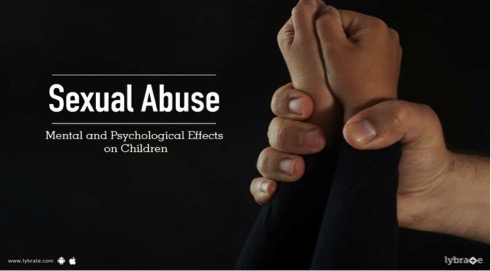|
Getting your Trinity Audio player ready...
|
Writes Martha Kachara
A 10-year-old girl, Marry (not her real name) was left in the custody of her uncle when the mother went out of the country in search of greener pastures. After six months, the girl had episodes of diarrhoea and vomiting. Her auntie took her to a local clinic for treatment. After the doctors’ assessment, an HIV test was recommended for the little girl. The test returned results indicating the child was HIV positive.
The caregiver testified that the mother was negative because she had witnessed her HIV test and results when she was processing papers for a VISA. Counselling was done and during risk assessment, the girl revealed that she had been raped by the mother’s boyfriend on several occasions. The case was reported to the rape clinic and investigations were done, and surely, the girl had been abused. Mary is only one of many children that are being sexually abused in Zimbabwe.
Despite there being an array of advocacy groups and national policies against the sexual abuse of children, media reports, scholarly and empirical literature as well as anecdotal experiences seem to suggest that Child Sexual Abuse (CSA) is in fact, on the rise in Zimbabwe.
Globally, the International Congress on Child Abuse and Neglect (ICCAN), in their 2022 global report on sexual abuse, reported that approximately 20% of children experience CSA before the age of fifteen. In Zimbabwe, the United Nations Children’s Fund (UNICEF) while launching their Protect Children Programme in 2022 reported that at least two in five of every child is sexually abused before they reach the age of 16 years.
When disaggregated by gender, the figures are direr for girls than they are for both yet both are quite concerning. Legislation in Zimbabwe recognizes that there is a variety of forms of CSA ranging from rape, statutory rape, indecent assault, sodomy, early child marriage, and abduction to having sexual intercourse with a prohibited person or minor. However, psychologist, David Horner notes that the psychological definition of CSA is that it is an abuse of power by an adult to acquire sexual gratification for themselves at the expense of a child. The abuse can occur at three levels, that is, exploiting physical ability, intellectual capacity, or authority by the perpetrator to obtain sexual gratification from the child.
A wide range of risk factors makes children in Zimbabwe susceptible to sexual abuse in various spaces such as homes, schools, churches, and so on. Such factors as conservative religious and cultural norms, drug and substance abuse, child disability, orphanhood, sexual deviancy, child neglect, and so on have often been cited.
Appeasing spirits (kuripa ngozi), prophetic dreams (kurotswa), prophetic healing (kushandirwa), child pledging (kuzvarirwa), sexual socialisation of in-laws (chiramu), and wife inheritance (chimutsa mapfiwha) are some of the most common religio-cultural practices leading to CSA in Zimbabwe.
Child sexual abuse can lead to long-lasting, even lifelong consequences, and is a severe problem for individuals, families, and communities. These include, compromised physical health, psychological trauma, drugs and substance abuse, low self-esteem, psycho-sexual trauma in which the victim may either struggle to establish intimate relationships or become abusers themselves, broken families, dropping out of school, and so on.
Interventions for CSA in Zimbabwe are both preventive and remedial. They can also be described as occurring at the primary and tertiary levels. However, often, these interventions are often integrated and multisectoral. Preventive or primary-level measures include legislation such as the Sexual Offenses Act and the Criminal Law Codification and Reform Act.
It also includes social workers identifying and working with at-risk youths such as orphans, advocacy, and secondary placement of at-risk youths. Social work resources and personnel may be deployed to prevent secondary victimization. Tertiary or remedial intervention for CSA in Zimbabwe includes medical assistance, for instance, the provision of prophylactics to mitigate the risk of contracting STIs including HIV.
There are several referral centres that provide both medical and psychological support such as Parirenyatwa Hospital and Childline Zimbabwe. These children are assigned social workers for continued psychosocial support, and re-adjustment in family and community (some children may require removal and secondary placement). Support is also provided by the Department of Social Welfare and by civil society organisations such as Justice for Children Trust (JCT) to ensure that the children continue with their education. Legal assistance is also provided to these children and a safe environment for them to testify against perpetrators.
The National Association of Social Workers of Zimbabwe (NASWZ) in their assessment of the intervention of CSA in Zimbabwe in 2022, report however that various challenges are encountered. For instance, not only are there limited personnel, but also limited competencies among the various health and social care officials. There is a skills and knowledge gap among social workers regarding both the impact and appropriate intervention methods that can be provided in CSA.
As a result, various social workers may provide different interpretations of child sexual abuse, legislation, and policies that guide intervention and may be oblivious to some risk factors. Sometimes caregiver fatigue and a lack of material or financial resources, and the perpetuation of conservative religio-cultural values continue to be significant risk factors. Several measures could be taken to enhance intervention.
It is recommended that more funding and resources be devoted towards intervention, and more personnel such as social workers, psychologists, and health professionals be trained on CSA. The penalties for perpetrators must be made more stringent so as to be a deterrent. Civil society, the media, educational institutions, government institutions, and communities at large must work towards systematically deconstructing the harmful religio-cultural and social norms that perpetuate CSA.
Martha Kachara is an intern studying counselling and psychology at Great Zimbabwe University.






